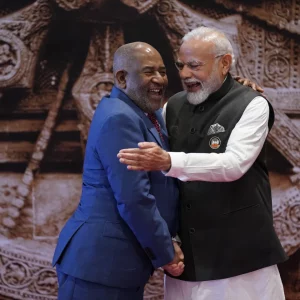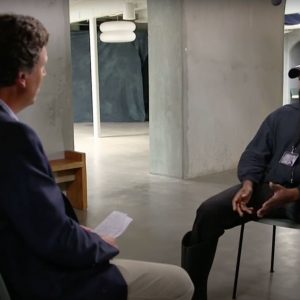“Mo’ money, mo’ problems” is a refrain uttered by the hip-hop loving, Notorious B.I.G. obsessed 11-year old Eddie Huang, star of ABC’s new hit television show Fresh Off the Boat. There are two very interesting things about the previous sentence. The first is the phrase, “fresh off the boat.” The second is Eddie’s last name, Huang, and what it means.
If you’re from around the Bay Area or anywhere with a large population of Asian immigrants, the term “fresh off the boat” is a familiar one. Frequently shortened to the acronym “fob,” the term is normally thrown around on college campuses to describe groups of international students who constantly speak in their native language as opposed to English. The term is a divisive and negative one, setting those who are “fobby”– typically first generation immigrants — apart from those who are not.
But what’s even more interesting than the slightly controversial name is Eddie’s last name, which happens to be a pretty popular Chinese last name. Let that sink in: Eddie, the main character of Fresh Off the Boat, is Asian. When was the last time an Asian actor played anything but supporting roles in American television? 1994 was apparently the last time, with the sitcom All-American Girl featuring Margaret Cho, which seems pretty recent until you realize that show aired twenty years ago. To put it in perspective of how common it is for Asian actors to be in leading roles, it was considered ground-breaking when John Cho, a Korean American actor most famous for playing Sulu in the reboot Star Trek movies, was cast to play a romantic lead in Selfie–a show which ended almost as soon as it started last fall. ABC’s Fresh Off the Boat is only the third time in television history that a major network has tried to make a hit show starring an Asian American family.
The real Eddie Huang–whose memoir the TV show is based on–says it best in a New York Times profile: “Culturally, we are in an ice age,” he said regarding the presence of Asians Americans in popular culture. “We don’t even have fire. We don’t even have the wheel. If this can be the first wheel, maybe others can make three more. ”
Huang points out a representation problem that isn’t limited to Asian Americans. It’s part of something bigger. UCLA’s Ralph J. Bunche Center for African American Studies just released a new study on diversity in Hollywood. Its findings reported that in 2013, minority actors claimed only 6.5 percent of lead roles in broadcast television, but minorities accounted for 37.4 percent of the US population that year. (All of the research was conducted with information only up to the 2012-13 season.) Cable television fared better with minority actors claiming 19.3 percent of the lead roles. However, it is clear that underrepresentation of minorities in television is a problem; Latinos and Asians had the lowest shares of lead roles in television.
What we see in television is important. One study has found that children do in fact notice when those on television aren’t like them and this in turn negatively impacts their self-esteem. When there is underrepresentation of minorities, it sends out the implicit message that our stories are somehow not good enough or interesting enough to be told and that our communities are irrelevant.
Why then in the United States, a country whose founding myth is based on immigration and a nation that purportedly supports diversity, is there such a representation problem? The UCLA report puts forth a theory of a top down problem within the industry. Executives at the top seek to maximize their potential payoffs and in order to do so, surround themselves with other people whom they believe will have a higher chance of producing ratings success. These other individuals tend to be very similar to the executives themselves, who unsurprisingly are typically white and male.
Notorious B.I.G. was right when he said, “mo’ money, mo’ problems.” Top executives rarely bank on minority-driven shows for fear that they’re “niche” and won’t attract broad-based audiences and that they’ll be ratings flops. If it’s money and viewers these executives are after, then we have have to bring it to them.
My fellow TV show and movie enthusiasts, I call you to action. Watch Fresh Off the Boat or any other show with a minority actor playing the lead–although I strongly encourage you to watch Fresh Off the Boat, because the Asian American community really doesn’t need to wait another twenty years before another network picks up a show starring an Asian American family. Become avid watchers and consumers of TV shows and movies with minority actors as the main characters. Prove that diversity sells.
Featured image source: ABC




